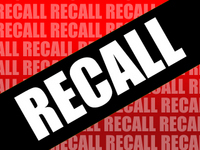How was GM Driven to Safety?
 |
WASHINGTON--June 18, 2014: A new report, Driven to Safety, released today by the American Association for Justice details the essential role the civil justice system played in uncovering the GM ignition switch scandal and the ways trial attorneys and their clients have spurred improvements in auto safety for over half a century.
"Then and now, the civil justice system has helped to create and enforce safety standards, revealed previously concealed defects, and deterred manufacturers from cutting corners on safety for the sake of greater profits," said American Association for Justice President Burton LeBlanc.
As part of GM's bailout, it was immune from legal accountability in product defect and wrongful death cases until July 10, 2009, when it emerged from bankruptcy. That means while American tax dollars were financing GM, injured American motorists were denied the justice they deserved and the public was kept in the dark about the dangers.
GM used court secrecy clauses to hide its wrongdoing in order to keep its dangerous cars on the market and continue to profit while American lives were threatened. GM's corporate cover-up and fatal ignition switch was finally exposed because grieving parents, Ken and Beth Melton, wanted answers, and their attorney, Lance Cooper, uncovered the truth through the civil justice system.
But this problem is not limited to GM. As a condition of turning over any material to injured consumers and their attorneys, manufacturers of faulty products regularly insist the information be kept secret–even if the product remains on the market and the information could warn the public of a potential health hazard.
In conjunction with the release of the report, the American Association for Justice is urging all consumers to tell Congress to strengthen the public safety measures the civil justice system provides by supporting the Sunshine in Litigation Act (S. 2364/H.R. 4361).
"Whether it's dangerous cribs, defective drugs or exploding tires, court secrecy endangers consumers and allows corporations to hide wrongdoing," added LeBlanc." Americans have a right to know about hazardous and defective products."
The Sunshine in Litigation Act would help prevent unnecessary injuries and death by shedding light on dangerous products. Both State and District court systems have taken steps to limit court secrecy - the Sunshine in Litigation Act would simply ensure that federal courts also consider public health and safety matters before issuing protective orders, sealing court records, or approving secret settlements.
The Sunshine in Litigation Act would:
Make the public aware of vital, life-saving information–giving federal judges additional discretion to evaluate settlements that hide important safety information from the public. Help prevent injuries from dangerous products and decrease litigation–restricting secrecy, companies would be unable to hide significant product hazards and would be motivated to correct these hazards earlier instead of waiting until more product related deaths and injuries occurred. Make courts more efficient while protecting the public–court secrecy restrictions adopted in various courts have not burdened judicial systems or impacted the number of cases resolved in these courts.
As the world's largest trial bar, the American Association for Justice (formerly known as the Association of Trial Lawyers of America) works to make sure people have a fair chance to receive justice through the legal system when they are injured by the negligence or misconduct of others--even when it means taking on the most powerful corporations. Visit Justice.


